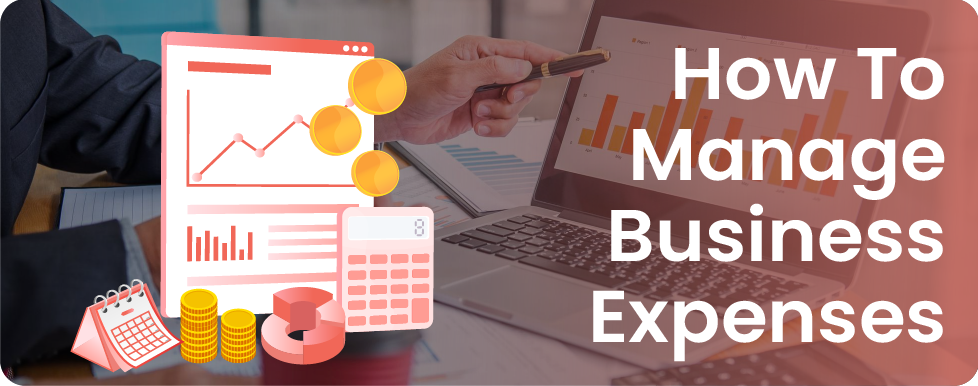In today’s competitive business environment, managing finances efficiently is crucial for the success and growth of small businesses. One essential tool that can help manage business expenses, build credit, and even earn rewards is a small business credit card. However, with so many options available, choosing the right credit card for your business can be overwhelming.
This article will guide you through what to look for when selecting the best small business credit card. We will cover key factors to consider, the various benefits and rewards options, and answer some frequently asked questions to help you make an informed decision.
Key Takeaways
- Rewards and Perks: Look for cards that offer rewards and benefits that align with your business spending.
- Interest Rates and Fees: Always be aware of the card’s APR, annual fees, and any foreign transaction fees.
- Credit Limit: Consider your business’s spending needs and choose a card with an adequate credit limit.
- Customer Support: Opt for a card issuer with excellent customer service, especially when it comes to handling disputes.
- Building Credit: Using your business credit card responsibly can help build your business’s credit profile, making future financing easier.
What Should You Look for in the Best Small Business Credit Cards?
When evaluating business credit cards, it’s important to understand the features and benefits that can have the greatest impact on your business’s financial health. Here are the most critical aspects to consider:
1. Rewards Program
Many small business credit cards offer rewards programs, which can be a great way to maximize your spending power. Rewards come in several forms, including cash back, points, or miles, depending on the card and your spending habits.
- Cash Back: If you want straightforward rewards, cash-back credit cards are an excellent choice. These cards typically give you a percentage of your purchases back, which can add up over time.
- Travel Rewards: If your business involves frequent travel, a business credit card with travel rewards can help you save on flights, hotel stays, and more.
- Points-Based: Cards that offer points can be used for a variety of redemptions, such as gift cards, travel, or even statement credits.
Before committing to a card, consider how your business spends money. If most of your purchases are on travel, look for a card that rewards travel-related purchases.
2. Sign-Up Bonuses
Another enticing feature to look for is a sign-up bonus. Many business credit cards offer bonuses if you spend a certain amount within the first few months of account opening. This can be a great way to earn a lump sum of points or cash back just for using your new card. However, be sure that the spending threshold is realistic for your business needs.
3. Interest Rates and Fees
The annual percentage rate (APR) and fees associated with a credit card can greatly impact your business’s bottom line. Business credit cards often have higher APRs than personal cards, but many cards offer introductory 0% APR for a limited period on purchases or balance transfers.
Key fees to be aware of include:
- Annual Fees: Some of the best cards have annual fees that range from $0 to $500, depending on the perks they offer.
- Foreign Transaction Fees: If your business operates internationally, look for a card with no foreign transaction fees.
- Late Payment Fees: Late fees can add up, so it’s essential to look for cards that provide grace periods and avoid unnecessary charges.
4. Credit Limit
The credit limit is another key factor in choosing a business credit card. Small businesses may need higher credit limits to accommodate larger purchases, so be sure to look for a card that can offer flexibility in terms of credit limits.
5. Perks and Benefits
Many small business credit cards come with added benefits designed to save you time and money. These can include:
- Purchase Protection: Coverage in case of damaged or stolen items.
- Extended Warranties: Some cards offer extended warranty coverage on eligible purchases.
- Expense Management Tools: Certain cards come with tools to help you track and categorize your business expenses.
- Employee Cards: Some business cards allow you to add employee cards with spending limits, making it easier to manage expenses across your business.
6. Customer Service and Support
Having access to reliable customer service is essential when managing a business credit card. Choose a card issuer known for offering excellent customer support, especially if you ever need help with disputes, fraud protection, or cardholder inquiries.
Types of Small Business Credit Cards: Which One is Right for You?

Overview:
There are various types of small business credit cards designed to meet different needs. The key to choosing the right one is understanding how each type can align with your business’s goals and spending habits.
Details:
- Cash-Back Cards: Offer a percentage of cash back on purchases. Great for businesses with consistent, predictable expenses.
- Travel Rewards Cards: Perfect for businesses with frequent travel expenses. These cards allow you to earn points or miles for flights, hotel stays, and car rentals.
- Business Credit Cards with No Annual Fee: These are ideal for startups or businesses trying to keep expenses low. They offer basic benefits without the added cost.
- Balance Transfer Cards: Useful for businesses carrying debt. These cards allow you to transfer higher-interest balances to a card with a lower interest rate or a 0% introductory APR.
How to Qualify for a Small Business Credit Card: Understanding the Requirements
Overview:
Understanding the qualification criteria for a business credit card is crucial. While business cards are tailored for business expenses, lenders will still review factors such as your credit history and business revenue.
Details:
- Credit Score Requirements: Different cards have different requirements. Typically, a score of 700+ is ideal for the best offers, but some cards may accept lower scores, albeit with higher fees.
- Business Structure and Size: Card issuers often require details about your business’s legal structure (LLC, sole proprietorship, corporation) and annual revenue.
- Personal Guarantee: Many small business credit cards require a personal guarantee, meaning your personal credit can be impacted if the business fails to repay its balance.
Managing Your Business Expenses with a Small Business Credit Card
Overview:
A small business credit card can be an excellent tool for managing cash flow, tracking expenses, and organizing receipts. Understanding how to maximize its utility can save you time and effort.
Details:
- Expense Tracking: Many cards come with tools that categorize your expenses (e.g., software, office supplies, marketing), making tax preparation and bookkeeping easier.
- Employee Cards: By giving employees their own cards, you can separate their business expenses from yours, all while maintaining control over spending limits.
- Consolidating Payments: Business credit cards can streamline your accounts payable process by allowing you to pay multiple vendors with a single card, simplifying invoicing and payment.
How to Maximize the Benefits of Business Credit Card Rewards Programs
Overview:
Rewards programs can offer substantial benefits, but to maximize them, you must understand how they work and align them with your business needs.
Details:
- Understanding Rewards Categories: Many cards offer higher rewards for specific categories (e.g., office supplies, advertising, or dining). Understanding these categories can help you maximize your earnings.
- Redeeming Points: Learn how to redeem your points for maximum value—some programs offer better deals for travel or merchandise rather than cash back.
- Stacking Benefits: Some credit cards allow you to stack rewards with other business promotions or partnerships, giving you extra points or discounts when shopping with particular vendors.
The Pros and Cons of Using a Business Credit Card vs. a Business Loan

Overview:
While business loans are another option for financing, business credit cards often offer more flexibility in terms of usage and repayment. Here’s a breakdown of the pros and cons of each.
Details:
- Business Credit Cards: Offer revolving credit, flexible repayment, and a variety of rewards. They’re generally easier to obtain, but they tend to have higher interest rates compared to business loans.
- Business Loans: Provide a lump sum that can be used for large purchases or investment in equipment, but they come with fixed repayment terms. Typically, business loans have lower interest rates than credit cards but can be more difficult to qualify for.
How to Avoid Common Pitfalls with Business Credit Cards
Overview:
While business credit cards offer many benefits, they also come with potential risks. It’s important to avoid common pitfalls to protect your business’s financial health.
Details:
- Missed Payments: Missing payments can result in late fees, interest charges, and a negative impact on your business credit score. Set up reminders or auto-payments to avoid this issue.
- High Credit Utilization: Using too much of your credit limit can negatively affect your credit score. It’s recommended to keep your utilization below 30%.
- Overextending Your Credit: Relying too heavily on credit cards for business funding can lead to financial instability. Use business credit cards strategically and avoid accumulating excessive debt.
- Ignoring Fees: Don’t ignore annual fees, foreign transaction fees, or late payment fees. These can add up quickly if you’re not mindful.
Building Your Business Credit with a Small Business Credit Card
Overview:
Building business credit is essential for securing loans, favorable terms, and better rates. A business credit card can help you establish and build your business’s credit profile.
Details:
- Paying On Time: Timely payments are key to building your credit score. Consistently paying your balance on time can help you establish a strong credit history.
- Keeping Balances Low: Maintaining a low credit utilization rate will positively impact your business credit score. Aim to keep your balance below 30% of your available credit.
- Reporting to Credit Bureaus: Ensure your card issuer reports your business credit activity to major credit bureaus, such as Dun & Bradstreet and Experian, to ensure your credit score is updated.
- Diversifying Credit Accounts: While a business credit card can be a great start, diversifying your credit portfolio with different types of credit accounts (e.g., loans, lines of credit) will help you build a more robust credit history.
The Best Business Credit Cards for Startups and New Businesses
Overview:
Startups often face unique challenges when it comes to financing, and a business credit card can be an ideal solution. These cards can help new business owners establish credit, cover initial expenses, and earn rewards while keeping costs low.
Details:
- Low or No Annual Fees: Startups typically have limited budgets, so cards with no annual fees or low fees are ideal.
- Rewards for Essential Purchases: Look for cards that offer rewards for common startup expenses, like office supplies, internet services, and business development tools.
- Introductory 0% APR: Some cards offer 0% APR for the first 6–12 months, which can help new businesses manage cash flow during the startup phase.
- Easy Qualification: Since many startups don’t have established business credit, it’s essential to look for cards that are easy to qualify for, even if your personal credit is being used as a guarantee.
How to Handle Business Credit Card Debt and Avoid Financial Strain
Overview:
Credit cards can be a valuable tool for financing, but misuse or overreliance on them can lead to debt. Here’s how to manage your business credit card debt effectively.
Details:
- Pay More Than the Minimum: Always strive to pay more than the minimum payment to reduce interest costs and pay down your balance faster.
- Debt Consolidation: If you have multiple credit card balances, consider consolidating them into a single, lower-interest card or using a business loan to pay off the debt.
- Balance Transfers: Consider transferring balances to cards with 0% APR for a limited time, which can help you pay down debt without incurring additional interest charges.
- Debt Management Plans: In extreme cases, consider enrolling in a debt management program that can help you negotiate lower interest rates or settle your debt.
Comparing the Best Small Business Credit Cards in 2025: Which One Fits Your Needs?

Overview:
With new offerings and changes in terms, it’s important to stay updated on the latest credit card products. This guide will help you compare the best small business credit cards available today.
Details:
- Chase Ink Business Preferred: Known for its high sign-up bonus and rewards in travel, office supplies, and internet services.
- American Express Blue Business Plus: Great for businesses that want to earn Unlimited 2x points on every purchase, with no annual fee.
- Capital One Spark Cash for Business: Ideal for businesses looking for straightforward cash back, offering unlimited 1.5% cash back on every purchase.
- Brex Card for Startups: No personal guarantee required, tailored for tech startups, with flexible spending and no fees for foreign transactions.
Read More : Business Credit Cards Bank Of America: What You Need To Know
Conclusion
Choosing the best small business credit card is an important decision that can help you manage expenses, build your business credit, and earn rewards. It’s crucial to evaluate your business’s needs, understand the available rewards and benefits, and assess the fees and interest rates before making a final decision. By keeping these factors in mind, you can select a card that fits your financial goals and supports your business’s success.
FAQs
1. Can I use a business credit card for personal expenses?
Technically, a business credit card should be used for business-related expenses only. Mixing business and personal expenses can complicate bookkeeping and could potentially affect your tax filings. It’s always best to keep business and personal finances separate.
2. What is the difference between a personal and business credit card?
The main difference is that a business credit card is designed specifically for business expenses, offering higher credit limits, better rewards, and features suited to business needs. A personal credit card is for individual use, with limits and features more geared toward personal purchases.
3. Do business credit cards affect my personal credit?
Yes, business credit cards can affect your personal credit. Some issuers may report your card activity to personal credit bureaus, especially if you’re personally liable for the card’s debt. On the other hand, if the card is not linked to your personal guarantee, your personal credit score may not be impacted.
4. What credit score do I need to qualify for a business credit card?
Each card issuer will have different requirements, but typically, a credit score of 700 or higher is considered good for qualifying for the best business credit cards. Some cards may approve applicants with lower scores but with less favorable terms.
5. Can I apply for a business credit card as a sole proprietor?
Yes, sole proprietors can apply for business credit cards. In most cases, you will need to provide your social security number (SSN) and other personal financial information as part of the application process.
6. Are there business credit cards with no annual fees?
Yes, there are several business credit cards that offer no annual fees. These cards may not have as many perks as their premium counterparts, but they can be a good option if you want to avoid paying an annual fee.
7. How can a business credit card help build my business credit?
Using a business credit card responsibly (by paying bills on time and keeping your credit utilization low) can help you build a positive credit history for your business. This can make it easier to secure loans and favorable terms for future business financing.




